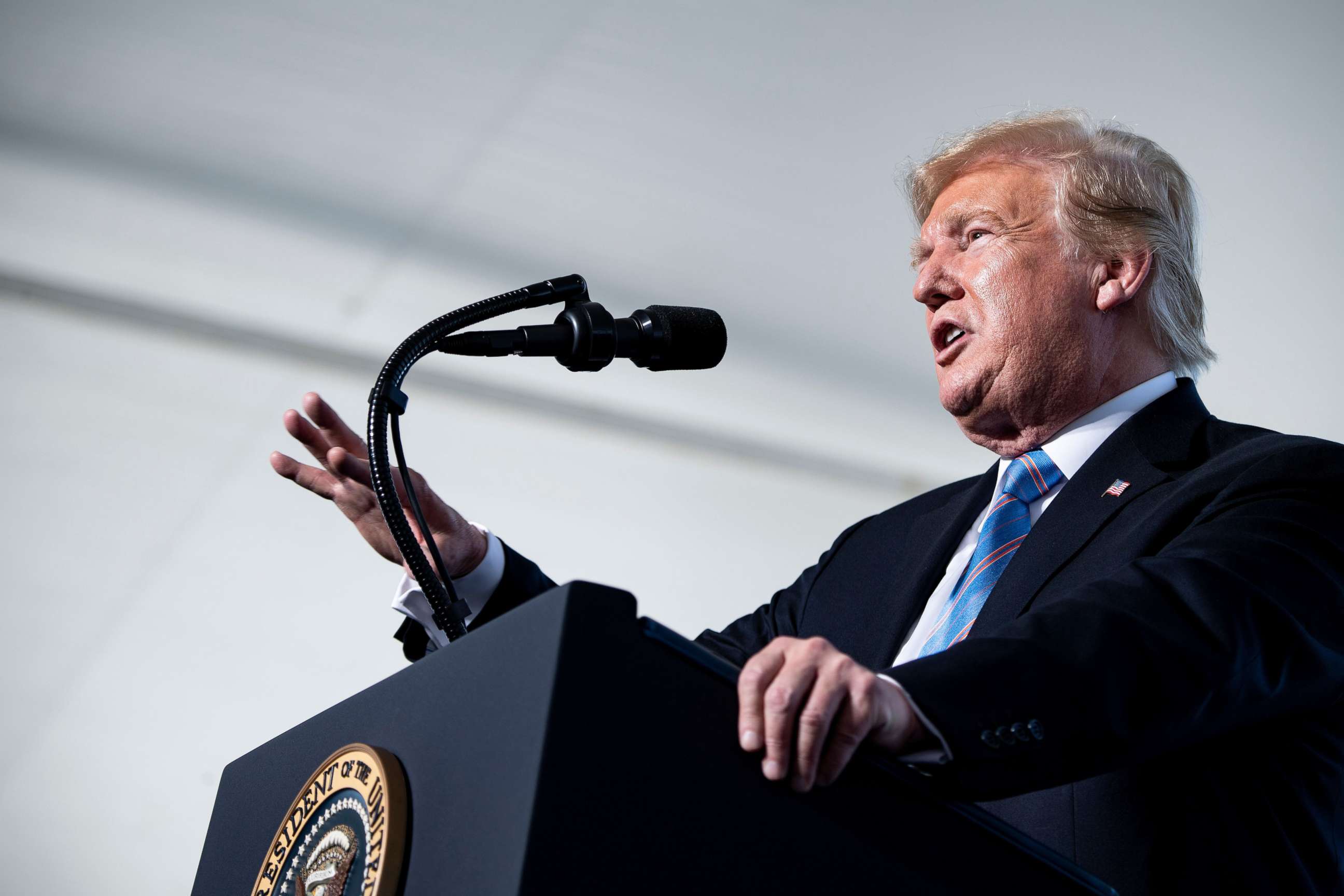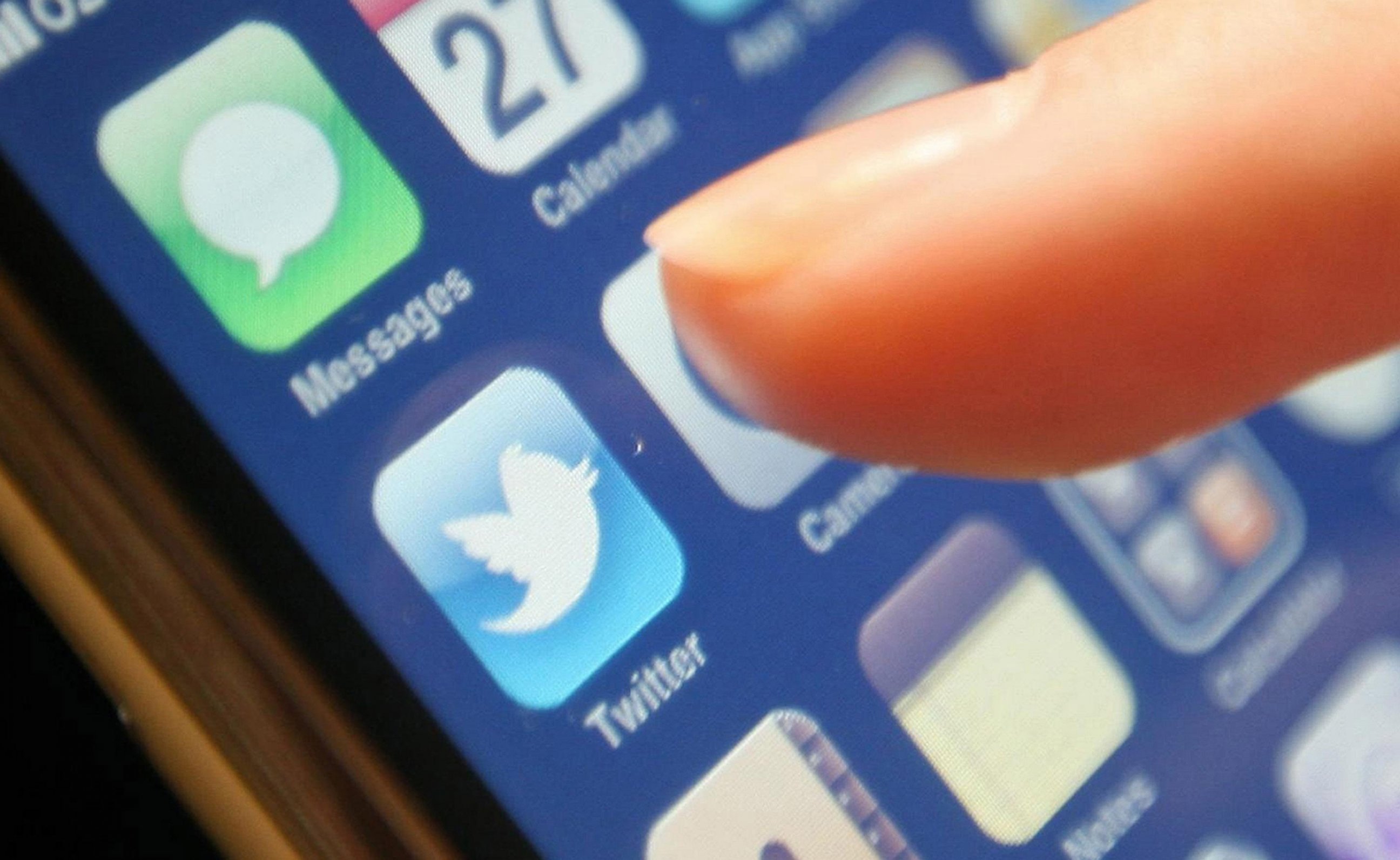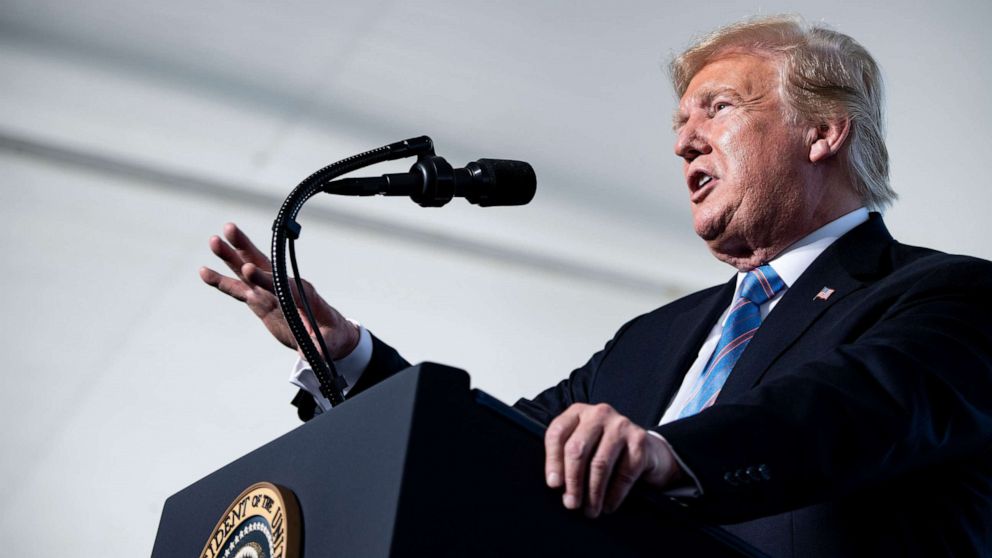Trump ramps up war against 'political bias' with new social media reporting tool
President Donald Trump's administration launched a new tool for reporting alleged political bias on Wednesday in the wake of controversial bans targeting high-profile Republican personalities on social media.
The tool will allow members of the public to report possible political censorship on Facebook, Twitter and Google's YouTube, platforms that the president has often accused of silencing right-wing voices.
"SOCIAL MEDIA PLATFORMS should advance FREEDOM OF SPEECH," according to the form, which the White House’s official Twitter account posted on Wednesday. "Yet too many Americans have seen their accounts suspended, banned, or fraudulently reported for unclear 'violations' of user policies."
The administration called the form an example of how it's "fighting for free speech online."

"No matter your views, if you suspect political bias caused such an action to be taken against you, share your story with President Trump," the website said.
The form urges users to post screenshots to back up claims of political bias and it also asks for the respondent's first and last name, zip code, phone number and their citizenship of residency status.
Once they provide the required information, the tool asks them to explain what happened to their social media account and whether or not a particular post was targeted.
Republicans on Capitol Hill have spent more than a year holding hearings over what they claim is bias against conservative news and viewpoints, even suggesting the censorship of some political speech raises antitrust issues. But tech companies say it's not about political speech, but rather speech that incites violence or hate.
One business and technology expert called the new tool a sign of how free speech is being politicized.
"It's troubling on on all sides when a functional, important underpinning of our society is being is being utilized for political gains," Robert Foehl, a business law and ethics professor at Ohio University College of Business, told ABC News. "We're in a time right now where I think it's vitally important for our citizens to understand the importance of freedom of speech."
He said the tool could definitely help to ensure freedom of speech as media outlets step up efforts to monitor potentially dangerous content.
The roll out came just hours after Facebook, Twitter and Google joined with world leaders in France to sign the so-called Christchurch Call -- a global accord that aims to curb online hate speech and violent extremism in the wake of the deadly mosque shootings in New Zealand.
French President Emmanuel Macron and New Zealand Prime Minister Jacinda Ardern, were joined by leaders from the U.K., Canada, Jordan, Indonesia and others on Wednesday to sign the agreement.
The Trump administration balked at the agreement, citing freedom of speech protections, but it said it agreed in principle.
“The United States is not currently in a position to join the endorsement," a White House spokesperson said in a statement Wednesday. "The best tool to defeat terrorist speech is productive speech."
Michael Beckerman, president of the Internet Association, a trade organization that represents most of the biggest technology companies, including Facebook, Google and Twitter, said it wouldn’t be good business for online platforms to censor users based on political ideologies.
"IA member company platforms don’t have a political ideology or political bias, and it would make no business sense for companies to stifle the speech of half -- or any significant portion -- their customers," Beckerman said in a statement. "The success and growth of internet companies depends upon a broad user base regardless of party affiliation or political perspectives."
President Barack Obama's administration ignited controversy nearly a decade ago when it when it encouraged people to flag misleading messages about the president's health care reform plan.
Macon Phillips, Obama’s former director of digital strategy, said it's ironic to see Trump deploy the same tactics that Republicans criticized during the previous administration.
"It's just a cynical way of using the same tools we try to use, but just like I don't know much about all," Phillips told ABC News. "Their digital strategy is about distraction from the issues that people care about."

Phillips, who currently serves as chief digital officer at anti-poverty nonprofit CARE USA, said the Trump administration doesn't seem to have much of a digital strategy beyond the president's Twitter account. He said the new forum could be used as a tool to sow more distrust and confusion online.
"A good digital program involves empathy and curiosity and interest in your audience, and I don't think the Trump administration is doing anything from that standpoint," he said.
"If Trump had something to say, you know, about constructive positive things, he would," Phillips added. "Instead, he focuses on a digital push right now to sow more doubt and division and distract from some really really difficult truths that he needs to grapple with."




